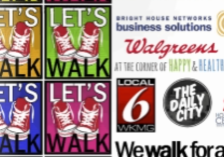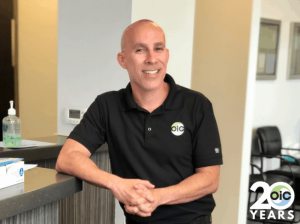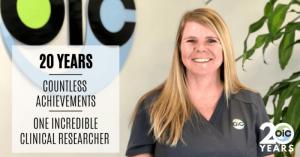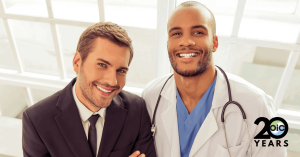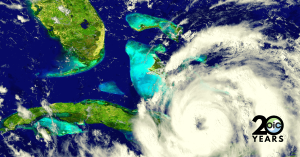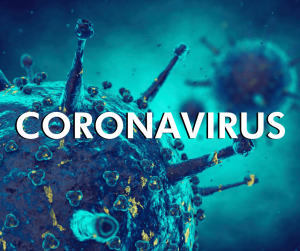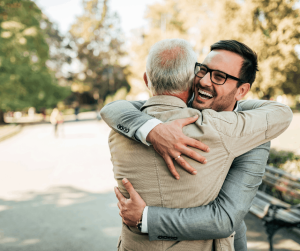How to Easily Get Medically Prepared for a Hurricane
Getting medically prepared for a hurricane is easier than you think. But it could be even more important than your typical hurricane prep routine. Hurricanes are erratic, powerful and destructive forces of nature. In addition, they can rapidly grow stronger. Or even decrease in strength but stall bringing wind and rain for extended periods of time. So even if we don’t think a storm will hit us, we should always be ready. In short, an Emergency Plan is the best way to get medically prepared for a hurricane.
Many people understand how to prepare their home and property from damage but often overlook their medical needs during these extended emergencies. Therefore, creating an Emergency Medical Kit that includes typical emergency supplies is a great idea. This is a general list, so keep in mind your specific medical conditions and needs. Above all, your Emergency Medical Kit can save you tremendous headache and perhaps even save our life.
How to Easily Get Medically Prepared for a Hurricane
This guide was created with information from FEMA, the FDA and The Orange County Government.
1. Medical Contact List – Maintain a list of medical phone numbers and contact information. For example, include your doctors, pharmacy, case manager, peer mentor, service providers and medical facilities. Then tell your family and friends
2. Medication – FEMA recommends that you have a 1 week supply of your prescription medications on hand, 2 weeks if possible.
- Current Medications – Make sure your pharmacist has an updated list of the medications. After that, have them print it for you.
3. Medical Records – Make hard copies and maintain electronic versions, including a portable thumb drive containing:
- Medical insurance cards, Medicare or Medicaid card, a list of your allergies, and your health history.
- Make an list of important online insurance or website information on it. Then keep passwords in different secure location.
- Doctors’ orders for Durable Medical Equipment, Consumable Medical Supplies and assistive devices that you use.
4. Medical Alert Bracelet – If you own one, wear it.
5. Additional Medical Supplies – For example, blood testing strips, bandages or insulin and make sure you have a two week supply.
6. Special Needs – If you require special needs you can register here with the State Emergency Response Team (SERT).
7. Mental Health – Storms can be stressful and/or traumatic. Therefore, we should be aware of our state of mind and take proper care. For example, staying with friends or loved ones that can provide comfort.
8. Extra Pair of Glasses – This extra pair can be critical in an emergency.
9. Extra Phone Portable Charger – Make sure its charged and ready to go.
10. Food – So you can meet any special dietary needs plus many medications require you to take them with food.
11. Medical Appointments – After the storm, call and confirm that the office is open before you go. If the office was closed when you had an appointment reschedule as soon as possible.
That was easy!
You’re ready! So share your plan with a trusted friend or loved one that you are medically prepared and who to contact in case of emergency. To clarify, this is a simply a guide to assist you medically prepare for a hurricane. That is to say, you should also refer to other federal, state and local resources to make sure your are fully prepared. Please clink the links for additional information. Then review all your resources to make ensure you are prepared in the event of an emergency.
Local Emergency Resources – Phone Numbers and Links (Print out and keep with you.)
Office of Emergency Management – (407) 836-9140
People with Special Needs Program – (407) 836-9319
Office of Emergency Management – (407) 665-5102
Hurricane Hotline number is – (407) 742-0000
Office of Emergency Management – (321) 633-2000
Office of Emergency Management – (352) 343-9420
Local Mental Health Resources – Phone Numbers and Links
Orlando United Assistance Center – 407-500-HOPE (4673)
The Mental Health Association of Central Florida – (407) 898-0110
General Community Resources – Phone Numbers and Links
Heart of Florida United Way – 211 or 407-835-0900
Stay safe!
 Sam Graper,
Sam Graper,
Community Relations Manager,
Orlando Immunology Center
Proudly Serving Central Florida for Over 20 Years
Get connected on Facebook, Instagram and Twitter. #BESTdoctors #OICorlando
More Articles
Dr. DeJesus Recognized by Orlando Magazine
For the 5th consecutive year, Dr. DeJesus has been recognized by his peers in Orlando Magazine for his work as medical director at Orlando Immunology Center. Dr. DeJesus is a graduate from the University of Puerto Rico, School of Medicine. He completed his Internal Medicine training and Infectious Disease fellowship at the Medical College of…
Read MoreJoin OIC at the 2015 AIDS Walk Orlando
Orlando Immunology Center is pleased to announce that we will again be sponsoring a team at this year’s 2015 AIDS Walk Orlando. If you are interested in joining our team or donating to this worthwhile cause, please let us know. Saturday, March 28, 2015 In Florida, 15% of all new HIV infections reported among females…
Read MoreOIC Wins Wave Award for Favorite Local Healthcare Professional
The Orlando Immunology Center (OIC) announced today they have received the Central Florida/Orlando 2015 Watermark Awards for Variety and Excellence (WAVE) Award for favorite local healthcare professional. “We see this as a huge honor and will continue to do everything in our power to help patients from all walks of life be healthy, happy and…
Read MoreBest of Luck on Your New Adventure
Best of Luck, Love Your Family We’re a family. And just like every family, we go through triumph and tragedy together – sometimes both in the same day. Today is one of those days as we wish someone we love best of luck on their new adventure. Omar Marquez, LPN, CCRC, one of our Clinical Research Coordinators,…
Read MoreWendy Reflects on Her 20 Amazing Research Years at OIC
“Incredible progress” – Wendy reflects on how much has changed in her 20 years of amazing research at OIC but adds “I’m staying until we find a cure for HIV.” Every field sees change over time, but not as much as the field of HIV. Twenty years ago there were few medications with many side effects.…
Read MoreEverything You Need To Know for Free Leaders of Color Training
Are you a person of color living with HIV and want to make a difference? Do you want to be a part of ending HIV in Orlando? Are ready to serve as a leader? Then this free leaders of color training is for you! Where: Heart of Florida United Way, 1940 Traylor Blvd., Orlando, FL 32804 When: July…
Read MoreMassive 500 Percent Increase in Prep Use; New Research
There’s been a massive 500 percent increase in PrEP. But is that enough to end HIV? New research shows a massive 500 percent increase in PrEP use to prevent HIV. During 2014 to 2017, several key aspects of HIV prevention dramatically increased. Which is great news! But these improvements were not across all groups. Moreover, only about one third…
Read MoreWhy Preventive Medical Care Matters to You
We only have one life! So live your happiest, healthiest life through prevention! What is preventive medical care? Preventive medical care is any medical service that will help prevent an emergency or chronic condition. “I’m active and feel great – I don’t need a doctor!” That’s the entire purpose! To keep you that way! It promotes an…
Read MoreHow to Easily Get Medically Prepared for a Hurricane
Getting medically prepared for a hurricane is easier than you think. But it could be even more important than your typical hurricane prep routine. Hurricanes are erratic, powerful and destructive forces of nature. In addition, they can rapidly grow stronger. Or even decrease in strength but stall bringing wind and rain for extended periods of…
Read MoreOIC COVID-19 Response
During this most difficult time, we at OIC strive to continue to take the best care of you and all the health needs of our patients. Due to the severity of the situation involving the Coronavirus (COVID-19), we have had to implement many (temporary) changes in the best interest and the safety of both our…
Read MoreFrom SOCIAL to PHYSICAL Distance
SARS-CoV-2 (SARS-2), the virus that causes COVID-19, spreads from person to person through respiratory droplets produced from an infected person, even if that person does not know he/she is already infected. Most transmissions occur during very close contact with an infected person or when an infected person coughs or sneezes around you. A six-feet parameter…
Read MoreCOVID-19 Basic Immune Response
Just for clarification: SARS-2 is the virus that causes COVID-19. The current COVID-19 PCR test measures viral RNA. It does not measure our immune response to the virus. Viral RNA is only found in blood with active viral infection (or for a short period of time after recovery). In fact, in theory, we should get…
Read MoreInterim Guidance for COVID-19 and Persons with HIV – Updated: March 20, 2020
This interim guidance reviews special considerations for persons with HIV and their health care providers in the United States regarding COVID-19. Information and data on COVID-19 are rapidly evolving. This guidance includes general information to consider. Clinicians should refer to updated sources for more specific recommendations regarding COVID-19. Guidance for all Persons with HIV In…
Read More
